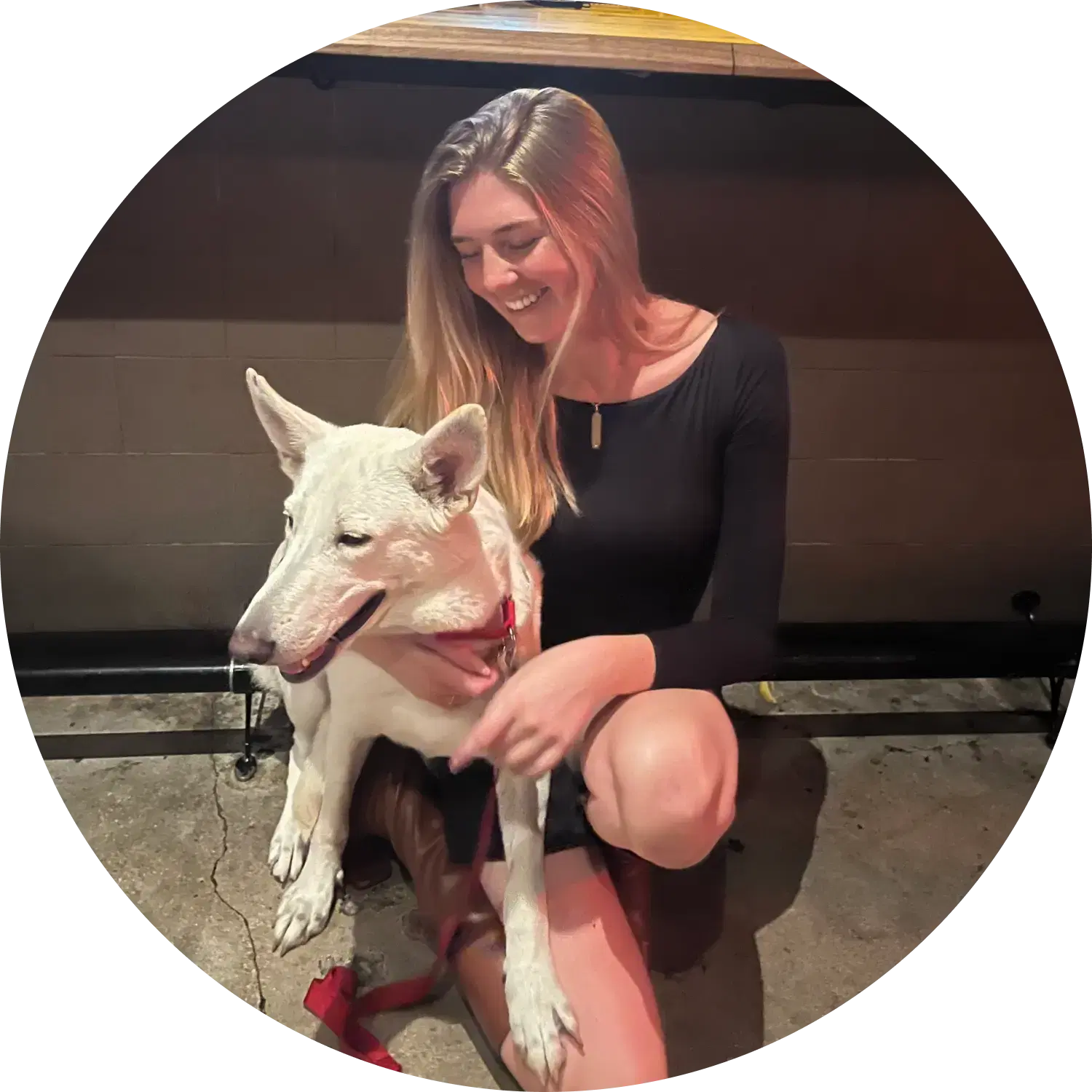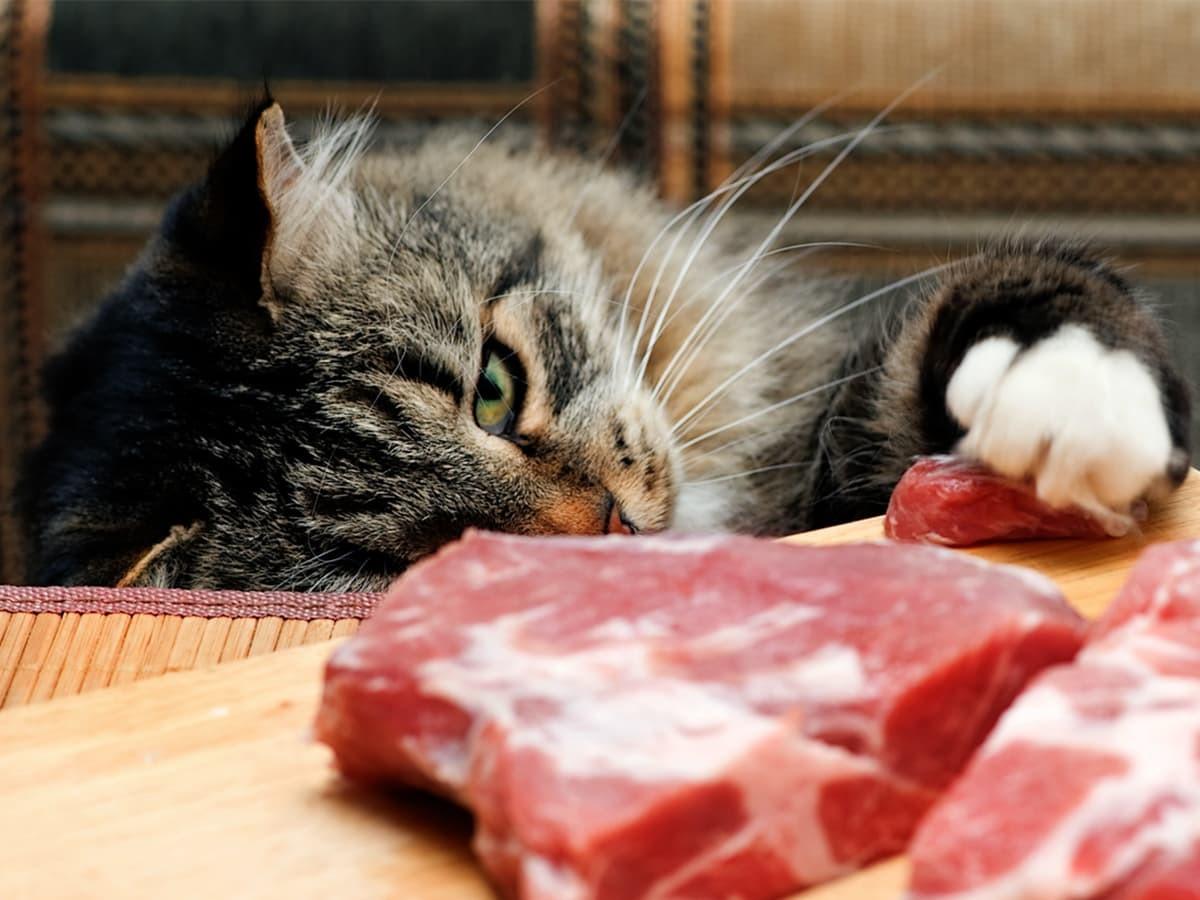Beef is a culinary name for meat that is obtained from cattle. Beef has a high environmental impact, as it is a primary driver of deforestation with the highest greenhouse gas emissions of any agricultural product. Nonetheless, humans love to consume beef in various forms and recipes. It’s natural to wonder if your cat can have some too.
Can I Give My Cat Beef?
Beef is relatively safe for a cat to eat. Steak is also safe but not an ideal option for everyday meals. Before you go ahead and begin adding meat to your cat's bowl, there are a few things that you need to know. For example: how to prepare beef for your cat and how much a cat can have per serving.
Do Cats Like Beef?
Cats are carnivorous by nature. This means that they have a natural inclination for eating meat and related food items. When it comes to meat, cats may be attracted to the rich protein content and flavor. However, some cats may not be as interested in beef as others. Cats are known to be picky eaters, so there is no way to know for sure that your cat will or won't like beef without testing it. Before you start to feed beef to your cat, let's answer one of the most important questions.
Is Beef Good for Cats?
According to Healthline, a 100-gram serving of broiled, ground beef contains the following:
Calories: 217
Water: 61%
Protein: 26.1 grams
Carbs: 0 grams
Sugar: 0 grams
Fiber: 0 grams
Fat: 11.8 grams
Beef protein is highly nutritious and can promote muscle maintenance and growth. Beef contains varying amounts of fat, including CLA, which has been linked to health benefits. It is also a great source of vitamin B12, zinc, selenium, iron, niacin, vitamin B6, and bioactive substances, such as creatine, taurine, CLA, and cholesterol. It can also help improve exercise performance.1 However, these are the benefits beef can offer to humans, can our cats get the same benefits from eating beef?
Health Benefits of Beef for Cats
Minerals like iron, zinc, manganese, and selenium are all important for your cat’s health and nourishment and can be found in good portions of beef. On top of that, cats require adequate taurine intake which can be found in beef liver. Beef consumption can help support muscle health, energy levels, and overall well-being of your cat.2
Is Raw Beef Okay for Cats?
Apart from the protein and other essential nutrients that beef can provide raw beef also contains a good amount of moisture. For cats that do not drink a lot of water, raw beef can be a good supplement and can help lower the risk of dehydration. However, the challenge with raw beef is in the quality and handling process of it. Feeding your cat raw beef carries the risk of making them sick from parasites and bacteria living in the raw meat, and there is also a risk that your cat can pass these conditions to humans living in the house. There is also the risk that your cat can get food poisoning from eating raw meat.2
Another thing to understand is that while wild cats have a gut that can easily digest raw beef, the digestive system of domesticated cats is not as well equipped for it.2 There is also a chance of your cat accidentally ingesting a small piece of bone which can lead to a choking hazard.
How Much Beef is Okay for Your Cat to Eat?
The recommended quantity of beef to feed your cat is approximately 2-3% of your cat's weight, split between two meals. A 10-pound cat for example should receive around 1.5 to 2.5 ounces per meal. The quantity can vary depending on the cat's activity level and metabolism.3 Start with feeding your cat in very small quantities; a bite-sized piece or a piece of beef about the size of your fingernail. Then keep an eye out for any signs of an allergic reaction or an upset stomach.
How Should You Feed Beef to Your Cat?
Here are a few tips on how to prepare beef you want to give to your cat:
Cooked – While raw beef may not be toxic for your cat, it comes with the risk of bacteria or parasites. Feeding cooked beef to your cat is preferable.
Keep it Simple – Avoid adding any seasonings like salt, pepper, garlic, or onions to the beef. Ingredients like garlic and onions are toxic to cats, and other spices can lead to an upset stomach.
Raw steak is okay – Raw steak can be okay to feed your cat in moderation, given that it is fresh, high-quality, and free from any seasonings or additives.3
Expert Insights From Spot
While your cat may seem interested in what you're eating, not all human foods are suitable for felines. Spot's internal data highlights that pet insurance claims for dietary indiscretions average $642*, reinforcing the importance of feeding your cat a safe and balanced diet.
Conclusion
Beef can be a safe food to add to your cat's diet. It's important to prepare it without salt, seasonings, or oil so that it is safe for your cat to eat. Always remember that despite beef being a natural part of a wild feline's diet, overeating can lead to potential health complications for domesticated cats. However, in moderation, beef can be a great source of nutrients for your cat and can help provide them with multiple health benefits.

The resident animal enthusiast at Spot. I have a lifetime of pet parent experience. If it has fur, feathers, or scales, I’ve probably shared my home with it. I aim to be a reliable source, blending experience with a dedication to the well-being of pets.
*Claim reimbursement examples are based on administrative data from 2019 to 2024. Actual reimbursement amounts may vary depending on plan type and options, including annual limit, co-insurance, and annual deductible, as well as the specifics of the claim and your policy terms.
Arnarson, Atli. “Beef 101,” Healthline, Jul. 24, 2024, https://www.healthline.com/nutrition/foods/beef.
Adams, Christian. "Can Cats Eat Beef?" Catster, Dec. 24, 2024, https://www.catster.com/nutrition/can-cats-eat-beef/.
“Can Cats Eat Steak,” Cats, Apr. 13, 2023, https://cats.com/can-cats-eat-steak.
The information presented in this article is for educational and informational purposes only and does not constitute or substitute for the advice of your veterinarian.












